
This multi-year project is establishing women’s financial co-operatives and water systems in strategically chosen villages to form a network of more economically mobile communities. Women’s empowerment and water access should be addressed as one, since women bear the time-intensive responsibility of fetching water from faraway sources, leaving little time for personal growth. The progression for each village is:
Design and build small systems that provide greater accessibility for drinking and irrigation water.
At the same time, develop, train, and seed fund women’s micro-finance cooperatives. This enables women to leverage their newly available time into income-generating opportunities.
In response to community needs and requests, coordinate, fund, and implement related projects like educational initiatives and health clinics.
Once the co-operatives are fully operational and self-sufficient, thousands of women in the region will have access to skills training, micro-loans, and additional programs like domestic abuse support.
*As of late 2024, the first women’s co-operative created is thriving, and construction is almost complete for two water systems.
*The next phase in 2025 is to deploy expertise from the first co-operative to train women at three new co-operatives in the district.
Women’s Scholarship Program
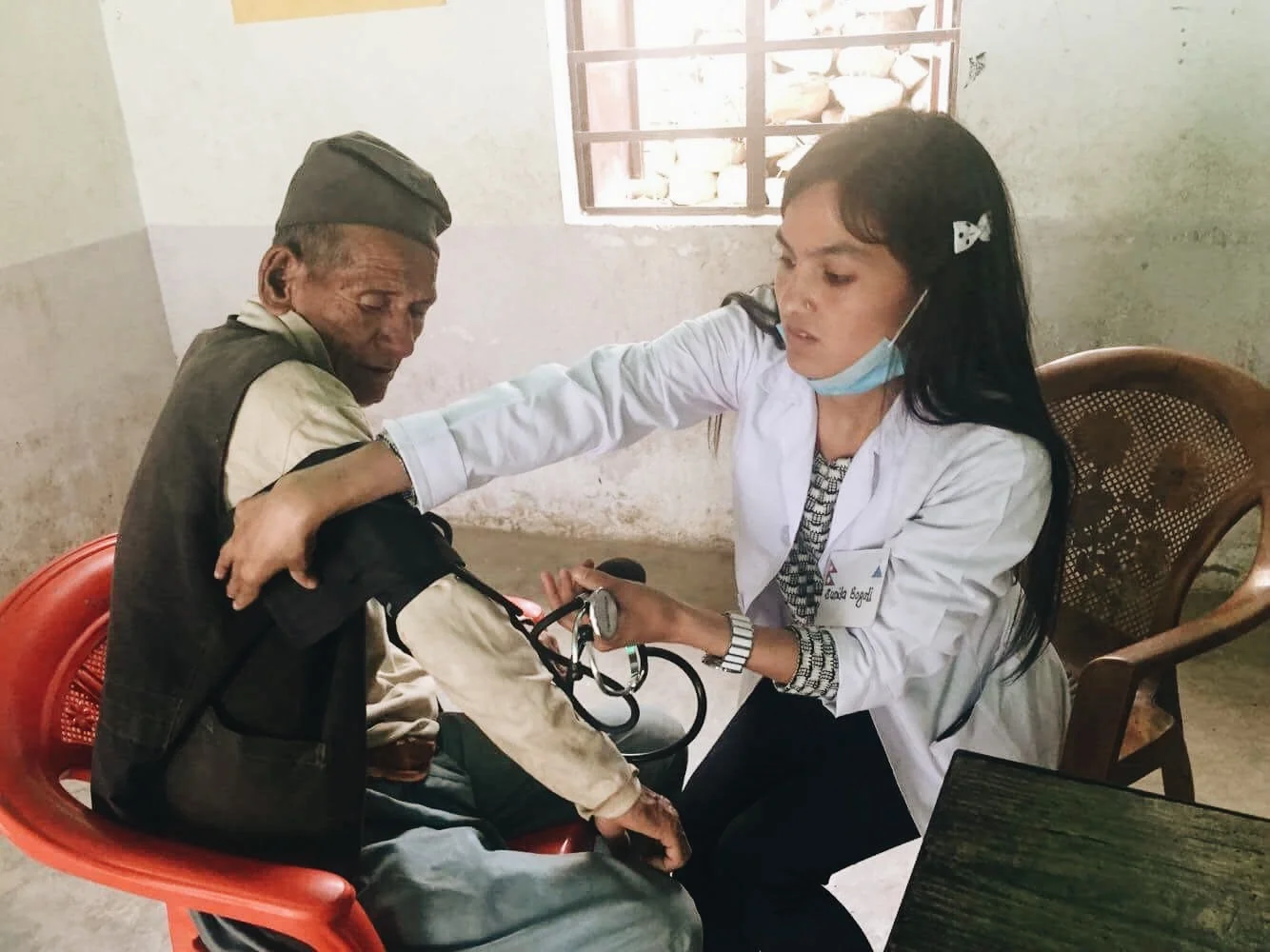
By 18, many Nepali girls are placed in an arranged marriage, unless they have the resources to begin their secondary education. Prakash was Sunita’s caretaker when he managed the children’s home she was placed in as a toddler, so she has been part of our Ascend family for over a decade. When her primary school was complete, she wanted nothing more than to go to nursing school. With the generous support of our donors, we raised enough money for the downpayment on her college tuition. As of 2020 she has completed school, and is now a registered nurse. Sunita’s life is no longer defined by the husband chosen for her, but by the knowledge and skills she works hard to master by her own volition.
Beginning in 2021, Ascend began funding tuition for the next young woman in this progam, named Ritu. She is from Prakash’s home district, raised by a single mother who works as a farmer. Ritu’s family is part of the “untouchable” caste, among the poorest of Nepalis. Like Sunita, Ritu wants to study medicine. She’ll graduate in 2024, when the community will help select the next girl to go through the program.
The Community Center

A women’s co-operative in the Lalitpur District, south of Kathmandu, lost their office to the 2015 earthquake. We purchased a piece of land in their name, and used an earthquake-safe technology called earthbags to build their new home. It includes their working space and a large multi-use room for educational courses, health clinics, and community gatherings.
The co-operative, now 13 years old, has grown from $25,000 in seed funding to over $150,000 currently in circulation. It now has over 330 members and is still growing. The women report a reduction in domestic violence, among other social and economic benefits.
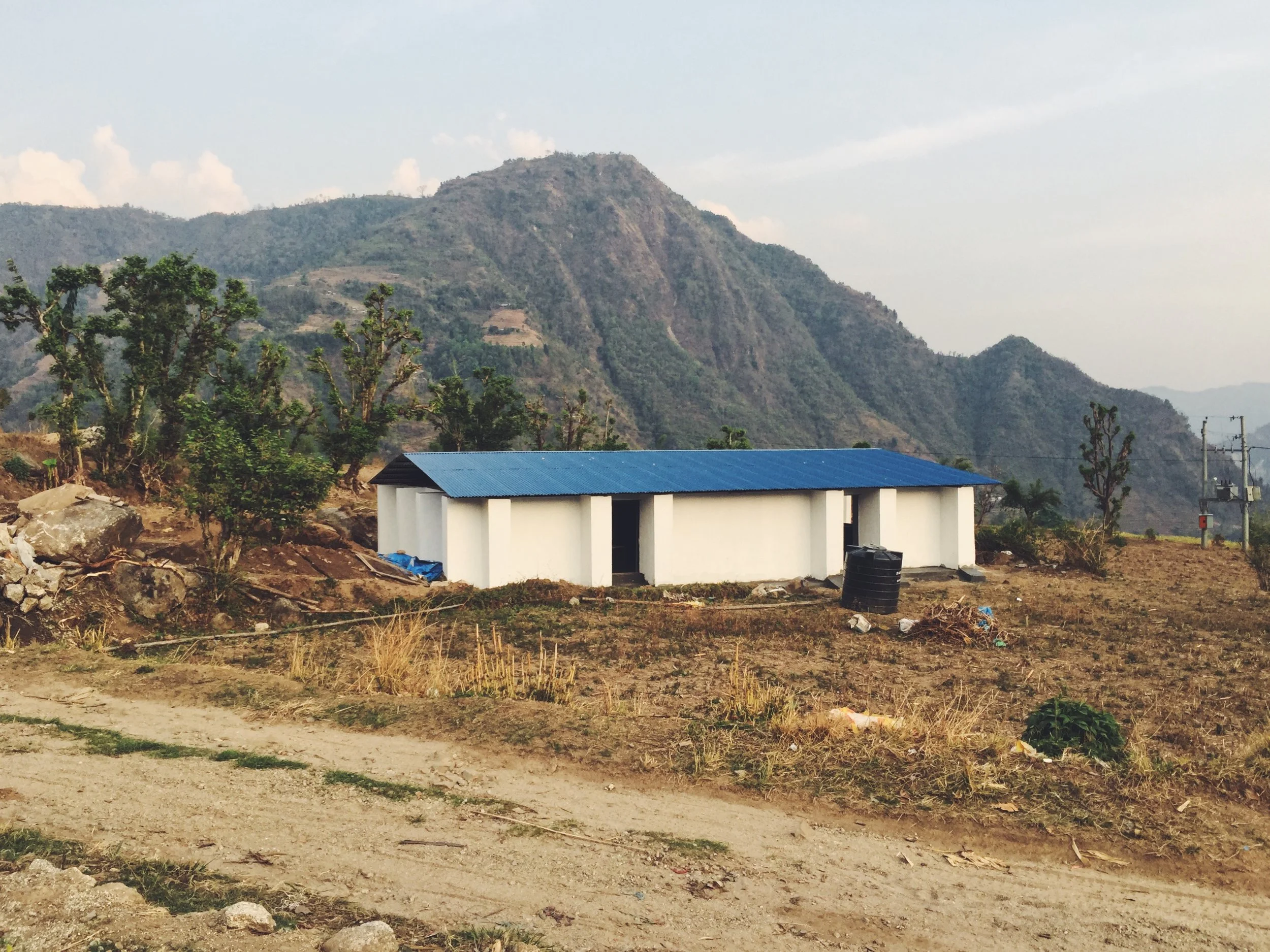
Dairy Cooperative
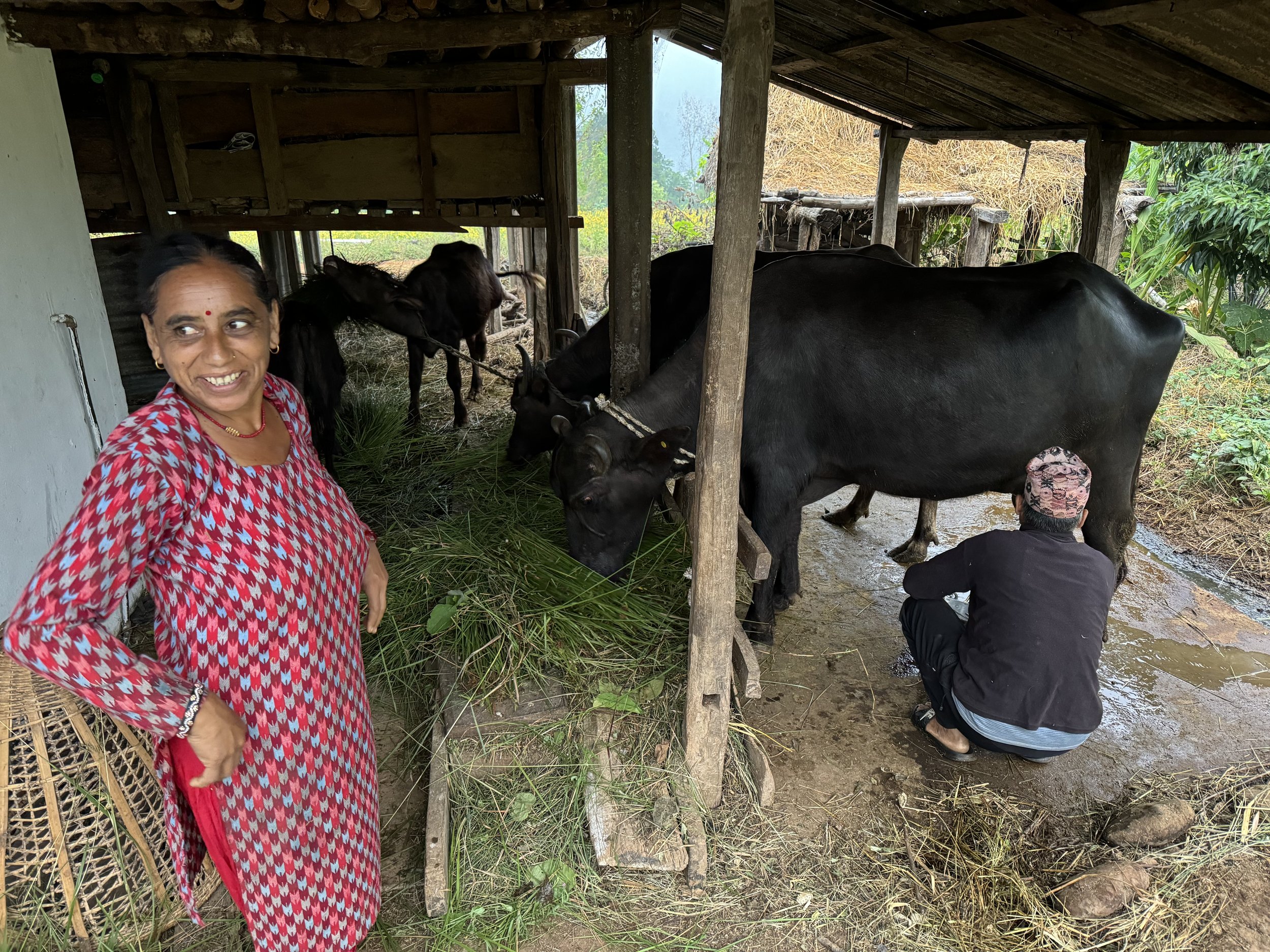
Ascend’s New Zealand based team helped the local government kick-start our newest project; a dairy cooperative. The program has placed 6 subsidized buffalos with families that already know how to manage them. The milk from these buffalo is collected daily and sold within the community. This not only brings income to the families, but provides organic nutrition. Seventeen more families are on the waitlist to join the cooperative.
The cooperative currently supplies an average of 60L of milk per day and hopes to increase to 1,000L per day within a year and to 10,000L per day within 5 years. To scale, the program needs equipment like a chiller and circulator and additional staff to keep up with the demand.
Health Clinics
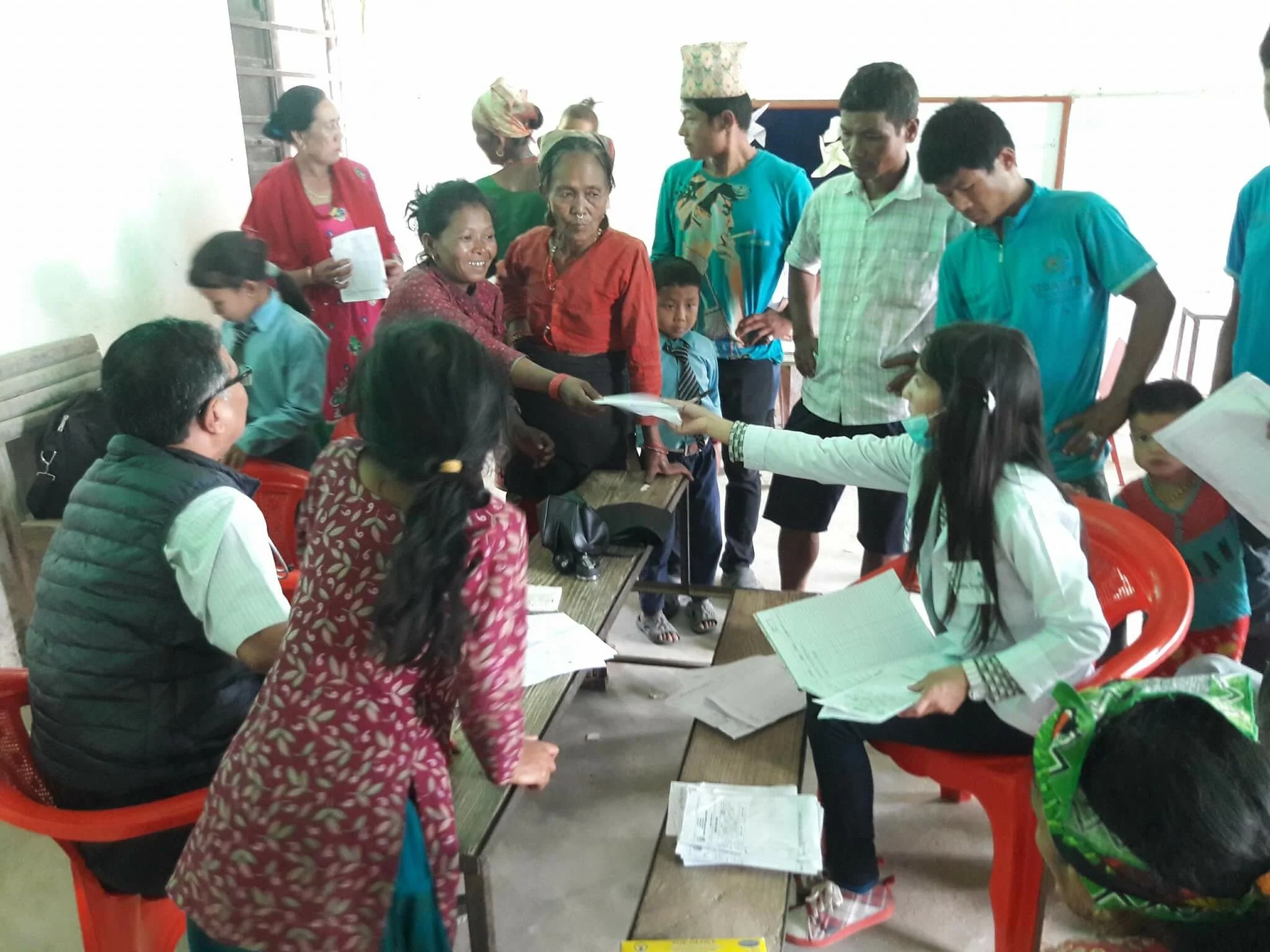
Imagine you don’t have advil for a headache, or even a bandaid for a cut. Most of our friends in rural Nepal have little to no access to medical supplies, with the exception of small outposts run by the government. However even these health offices only have basic supplies, and very basic first aid education. There is a huge gap in needs vs access to health care, and it is something we hear about during every visit. From April 15-18 2018, we partnered with an American and Nepali doctors and local health staff to travel to three different villages in the Malta region, where they were able to see 355 patients. Three weeks later, the Nepali health team traveled to the Nawalparasi District and ran another health camp there serving another 249 patients.
In addition to being a wonderful opportunity to share healthcare access with some of our partner villages, one of our goals was to gather baseline data on what types of ailments rural people in these regions are experiencing and what their greatest needs are. The most common health problems reported were reproductive health, skin diseases and digestive issues. Specifically, uterine prolapse is a major concern in all the villages we work with.
In February 2020, we’re partnering with a local medical non-profit to run a women’s health specific clinic to treat reproductive issues and identify women with uterine prolapse. This debilitating condition effects up to 10% of women in Nepal and is generally caused by heavy labor and uneducated birthing practices. After diagnosing women with this condition, we will provide transportation and lodging at the closest government run hospital for the women to get corrective surgeries.
Shelter
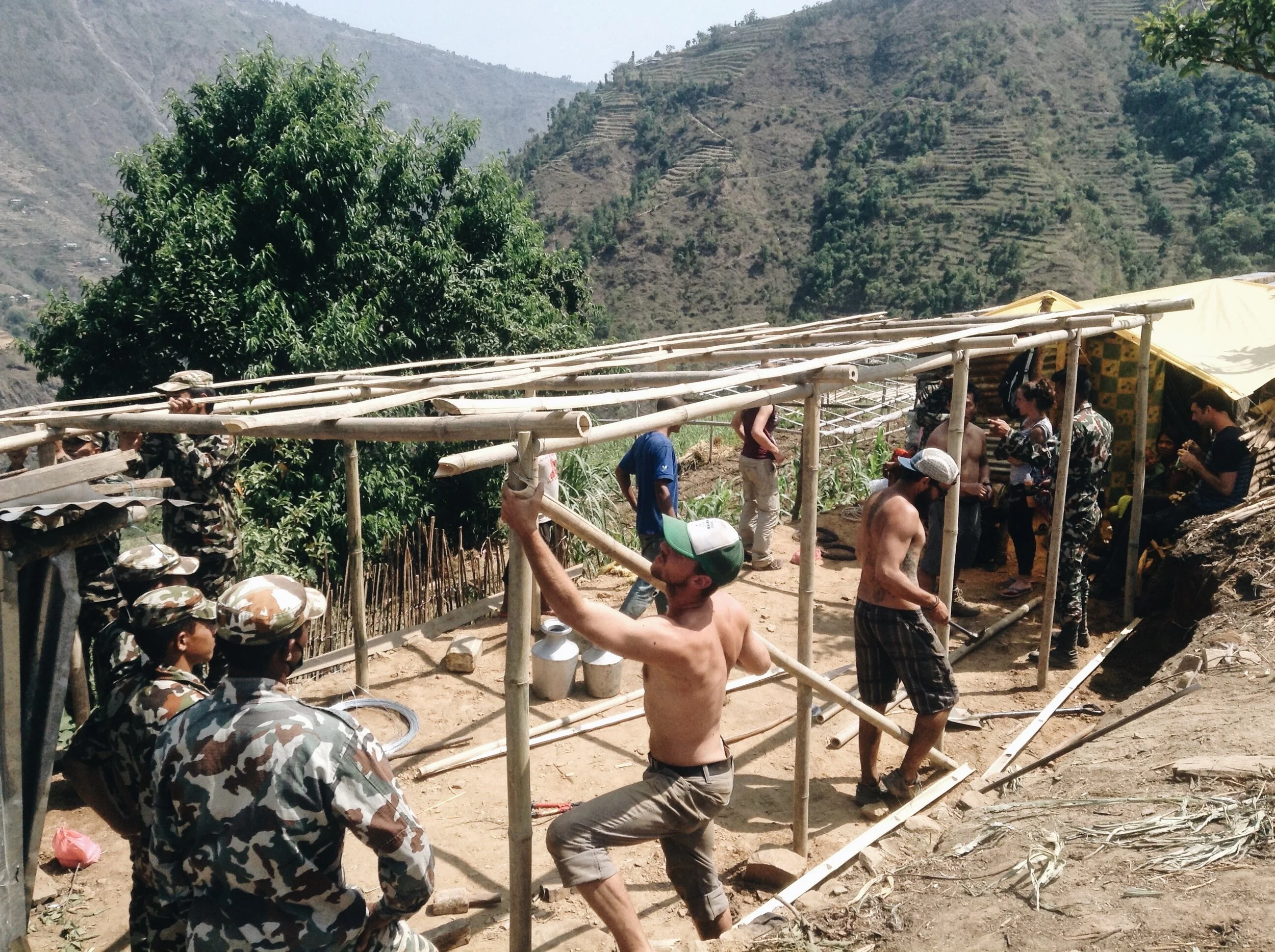
After a 7.8 magnitude earthquake hit Nepal in 2015, we launched a shelter building project in a village called Ghusel, south of Kathmandu. The original brick homes suffered severe damage, and most belonging to lower caste families were completely inhabitable. Our team worked alongside the locals to design and build sturdy bamboo homes and in turn, lasting relationships. Thanks to an amazing ongoing effort from our international team and volunteers, 600 people now live in the temporary shelters, which will remain home for the people in Ghusel until they can afford to rebuild a more permanent structure.
